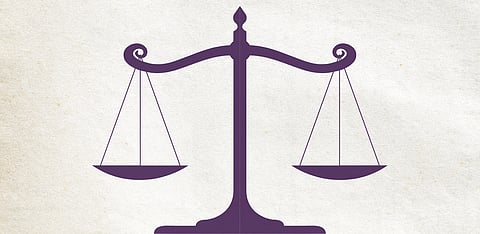

Lok Adalats inside prisons are the most effective as the prisoners can get direct access to justice. But there is a need to regularise it, says founder of Prison Aid + Action Research, Smita Chakraburtty
—–
ON October 15, as part of an initiative by the Chhattisgarh State Legal Services Authority ('CSLSA'), Lok Adalats were set up in prisons across the state of Chhattisgarh for speedy disposal of cases, by facilitating the release of prisoners who are lodged in prison despite being granted bail, or are charged with offences that are not heinous in nature. As a consequence of such a drive, over 430 prisoners were released.
In the case of Sonadhar versus the State of Chhattisgarh, the Supreme Court heard a Special Leave Petition and invited suggestions to decongest prisons. The CSLSA proposed to request the Chief Justice of the High Court of Chhattisgarh to issue a circular to depute two to three Magistrates in every district for holding court, sitting in jail premises on every working Saturdays and dispose of cases in which the accused are willing to confess their guilt.
Justice Goutam Bhaduri of the Chhattisgarh high court, who is also the executive chairman of the CSLSA, launched Jail Lok Adalats across all prisons in Chhattisgarh.
As reported by The Hindu, all undertrials who have been named in offences in the Criminal Procedure Code that are heard by a judicial magistrate, including offences of petty theft, house trespass, and cheating, are eligible for hearing in Lok Adalats. Moreover, those arrested under preventive provisions for offences such as brawling or violation of special laws such as excise-related legislation or the Railways Act, are also considered eligible.
Smita Chakraburtty, founder of Prison Aid + Action Research and honorary prison commissioner appointed by the Rajasthan Government, working to implement an open prison system in India, has termed it as an "excellent initiative by the CSLSA".
Chakraburtty emphasised that such an initiative should be sustained and continued, and not be a one-off instance. According to her, "It is historically proven that Lok Adalat is an effective instrument. And Lok Adalats inside prisons are the most effective as the prisoners can get direct access to justice. There is a need to regularise it."
On such prisoners being released who were charged with minor offences, Chakraburtty raised a concern that they should not have been in the prisons in the first place. She said that such individuals, who were charged with minor offences, should have been released from the court after their production. To take cognisance of this issue, she opined that a study needs to be conducted to identify reasons for such prisoners entering the prison system, and the rationale on why their imprisonment is not prevented. She pointed out, "State Legal Services Authorities ('SLSA'), which also undertake judicial training, should take it up with Judicial Academy to train and enable the sensitisation of the judiciary accordingly. Bail should be the first priority, not jail".
Explaining the role of the SLSA, Chakraburtty said that being a body of lower court judges, the SLSA has the mandate to conduct Lok Adalats on a regular basis. She further highlighted that the Constitution guarantees every individual the right to access justice (Articles 39A, 14 and 21 of the Constitution). "Prisoners do not get this right since they are in custody. When the court enters prisons, it is a proud moment for the criminal justice system", Chakraburtty added.
Chakraburtty addressed the criticism faced by Lok Adalats on account of their plea-bargaining initiative, and opined that prisoners have limited legal knowledge and plea-bargaining should only be done in presence of their lawyers. She clarified, "Lok Adalats for release of prisoners is a good thing. However, the plea-bargaining initiative of Lok Adalats that causes speedy conviction of prisoners without fair trial, cannot be supported."